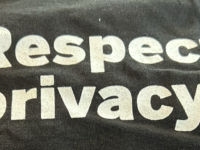The Bill C-2 lawful access focus has thus far primarily centred on the creation of a new warrantless information demand power and the expansion of production orders to access information. Those provisions are found in Part 14 of the bill, but there is also a Part 15 that requires closer scrutiny. It grants law enforcement access to electronic service provider networks, including inspection, oversight, and demands regarding the equipment on their networks. At issue is everything from the use of end-to-end encryption to notifications of network vulnerabilities.
David Fraser is one of Canada’s leading privacy lawyers and he’s been sounding the alarm on the implications of those provisions. He joins the Law Bytes podcast to talk about the implications of Part 15 – aka the Supporting Authorized Access to Information Act – and what it means for network providers and the safety, security, and privacy of Canadians.











